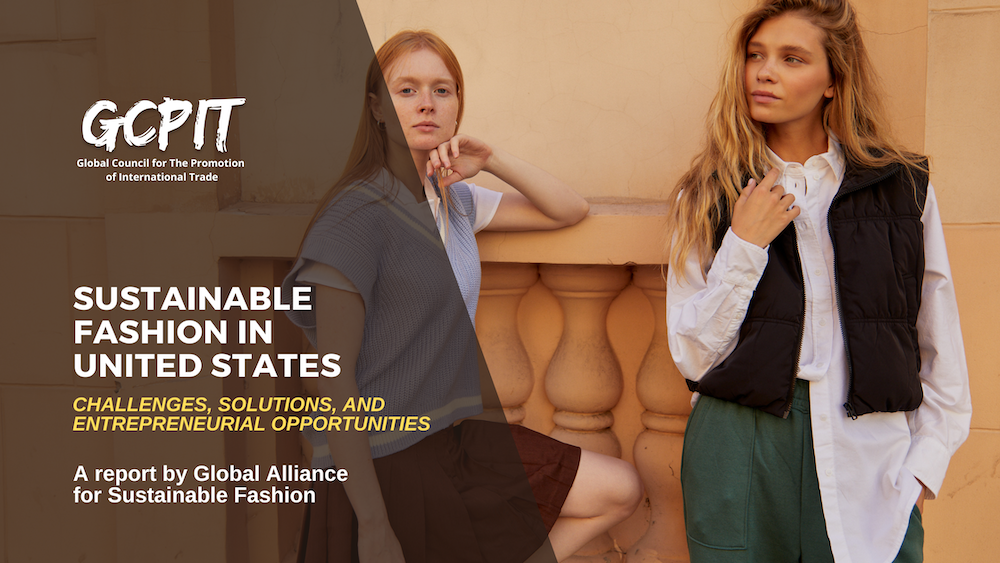Stay Ahead of the Curve by Exploring Innovative Style Fads
In an industry as vibrant as fashion, staying ahead involves greater than simply following present patterns-- it requires an expedition of advancement. Smart fabrics, for example, are changing garments into functional masterpieces, while 3D printing is reinventing style procedures with its customizable, waste-reducing capabilities. As sustainability ends up being a keystone, advancements like green materials and round fashion practices are reshaping environmental responsibility - Cape Town Sustainable Fashion. Furthermore, the convergence of technology and style heralds a new era of consumer engagement. Exactly how, after that, can these emerging patterns redefine the future of style, and what effects do they hold for brands seeking to grow in this developing landscape?

Accepting Smart Textiles
In the last few years, the fashion business has actually witnessed a transformative shift with the combination of wise fabrics, an advanced advancement that mixes modern technology with textile. This advancement represents not only a fusion of appearances and functionality but also a significant leap towards sustainability and personalization in fashion. Smart textiles, likewise referred to as e-textiles, embed advanced electronic devices such as sensing units and conductive strings within the material, allowing garments to communicate with the environment or the wearer.
These fabrics are made to check physical criteria, such as heart price or body temperature, offering real-time health analytics. Past wellness applications, clever fabrics are likewise being utilized for adaptive apparel, which can transform shade or pattern in action to environmental stimuli, thus offering a vibrant style experience.
Furthermore, the growth of energy-harvesting fabrics that produce power from motion or sunlight is leading the way for self-sufficient wearable technology. This development is attracting eco aware customers and developers aiming to decrease the ecological footprint of fashion. As r & d in this field advancement, clever fabrics are expected to become progressively widespread, improving the landscape of contemporary fashion with their multifunctional capacities.
The Surge of 3D Printing
Changing the production landscape, 3D printing has become a game-changer in the fashion business. This cutting-edge modern technology has made it possible for developers to push the boundaries of imagination, creating intricate and personalized garments that were previously unimaginable. By leveraging electronic layout and additive manufacturing, 3D printing facilitates the development of complex geometries and patterns, enabling developers to trying out new appearances and structures.
A remarkable benefit of 3D printing in vogue is its capacity to produce on-demand, minimizing waste and minimizing inventory demands. This effectiveness not only optimizes production procedures yet additionally enables for fast prototyping, enabling developers to bring their visions to life in a shorter duration. Moreover, 3D printing supports personalization to a degree unmatched by typical approaches, offering unique designs and tailored fits customized to individual customer preferences.
The rise of 3D printing has actually additionally equalized fashion, making it obtainable to emerging designers that can currently make high-quality pieces without considerable monetary investment in typical manufacturing infrastructure. As innovation continues to development, the garment industry is positioned to harness the full potential of 3D printing, exploring new materials and methods that will undoubtedly redefine exactly how style is conceived and created.
Lasting Style Advancements
As the fashion business comes to grips with journalism requirement for environmental obligation, sustainable fashion advancements have emerged at the forefront of transformative change. The growing recognition of eco-friendly influence has actually sustained a change in the direction of even more eco-conscious techniques and products. Brands and developers are now prioritizing sustainability, including methods that minimize waste and minimize carbon impacts.
One substantial development is the increase of round style, which emphasizes recycling and upcycling to extend the lifecycle of garments. This approach not just lowers waste yet likewise motivates customers to embrace an extra conscious technique to garments consumption. Additionally, using lasting products, such as organic cotton, hemp, and recycled polyester, has gained traction. These materials need much less water and power during manufacturing, substantially decreasing environmental effect.
One more innovation hinges on the fostering of innovative dyeing methods that make use of waterless procedures or natural dyes, thus reducing the huge quantities of water and chemicals typically made use of in textile dyeing. In addition, improvements in biotechnology have caused the production of lab-grown leather and textiles, offering ecologically friendly and cruelty-free choices to conventional materials. Through these pioneering efforts, the garment industry is making meaningful strides towards a much more lasting future.

Tech-Integrated Clothing
Tech-integrated apparel represents an innovative combination of fashion and innovation, reshaping how individuals interact with their clothing. This innovative domain is marked by the inclusion of clever fabrics and embedded digital components, improving both performance and aesthetic appeal. From physical fitness trackers installed in sports apparel to heated jackets managed through smartphone applications, tech-integrated clothing provides customers extraordinary benefit and adaptability.
Pioneering brands are driving this pattern, concentrating on developing garments that react to ecological stimulations or individual commands. For instance, some garments can alter color or pattern in reaction to temperature shifts, while others incorporate biometric sensors to monitor health metrics like heart price or stress and anxiety degrees. The seamless assimilation of innovation into textiles also expands to ecological sustainability, with efforts to develop self-cleaning textiles or garments that adapt to weather problems, thus minimizing the demand for numerous layers.
Additionally, the introduction of wearable technology Discover More Here is not simply restricted to clothes but encompasses devices like watches and eyeglasses, further widening the range of tech-integrated fashion. As the sector remains to innovate, the capacity for you can check here personalization and personalization in garments expands, using consumers unique, tech-enhanced style experiences that deal with their specific requirements and preferences.
Future of Virtual Fashion
In recent times, the future of digital fashion has actually become a transformative force within the industry, leveraging advancements in electronic technology to redefine how fashion is produced, experienced, and consumed. By integrating increased truth (AR), online truth (VIRTUAL REALITY), and 3D layout devices, developers can currently craft interactive and immersive experiences that transcend conventional fashion limits. Digital fashion enables the creation of garments that exist entirely in digital environments, providing countless opportunities for technology without the constraints of physical manufacturing.
This digital change not only provides possibilities for imaginative expression however additionally addresses sustainability concerns intrinsic in traditional fashion techniques. Cape Town Sustainable Fashion. By eliminating the need for physical sources, digital fashion decreases waste and decreases carbon footprints. Additionally, the increase of digital fashion lines up with the raising consumer demand for one-of-a-kind and individualized experiences, as virtual garments can be personalized and customized to specific preferences with convenience

Final Thought
The fashion market's future lies in the integration of cutting-edge innovations and sustainable methods. Virtual style is poised to redefine customer interactions.
In recent years, the fashion sector has actually seen a transformative change with the integration of wise textiles, a cutting-edge advancement that mixes innovation with textile.As the style industry grapples with the pushing requirement for ecological responsibility, lasting fashion technologies have emerged at the center of transformative modification.In recent years, the future of online style has arised as a transformative additional info pressure within the sector, leveraging developments in electronic modern technology to redefine exactly how fashion is developed, experienced, and eaten. The rise of digital style aligns with the enhancing customer demand for special and customized experiences, as online garments can be personalized and tailored to private preferences with ease.
The fashion industry's future lies in the integration of sustainable techniques and innovative technologies.
Comments on “Cape Town Sustainable Fashion: Redefining Design with Moral Options”